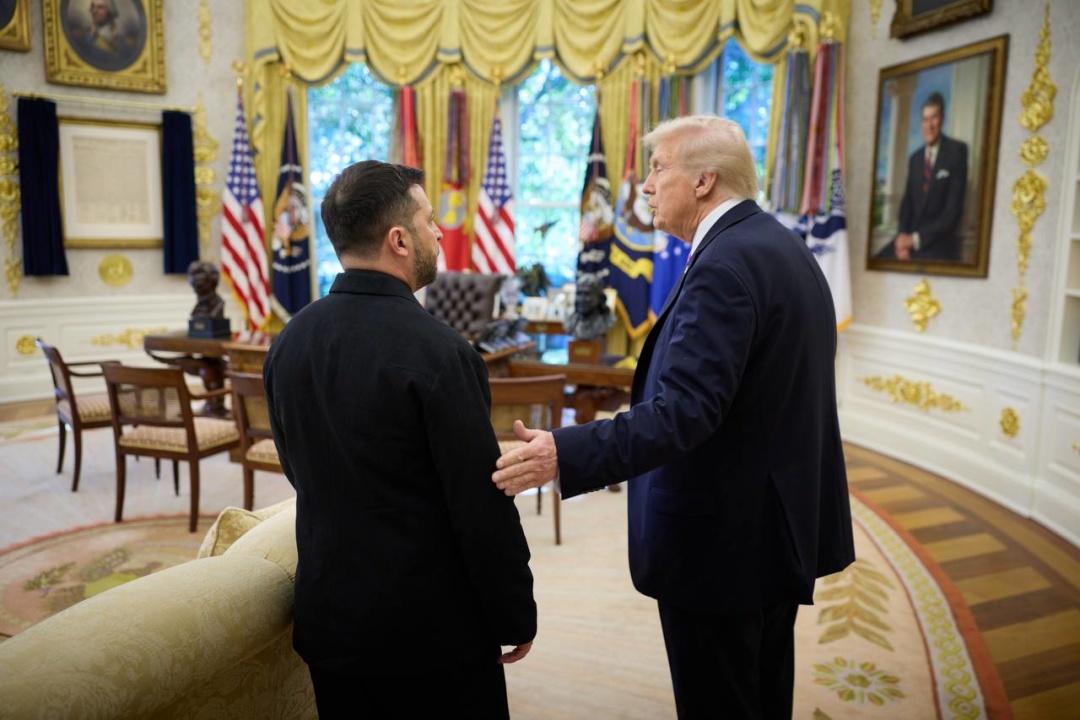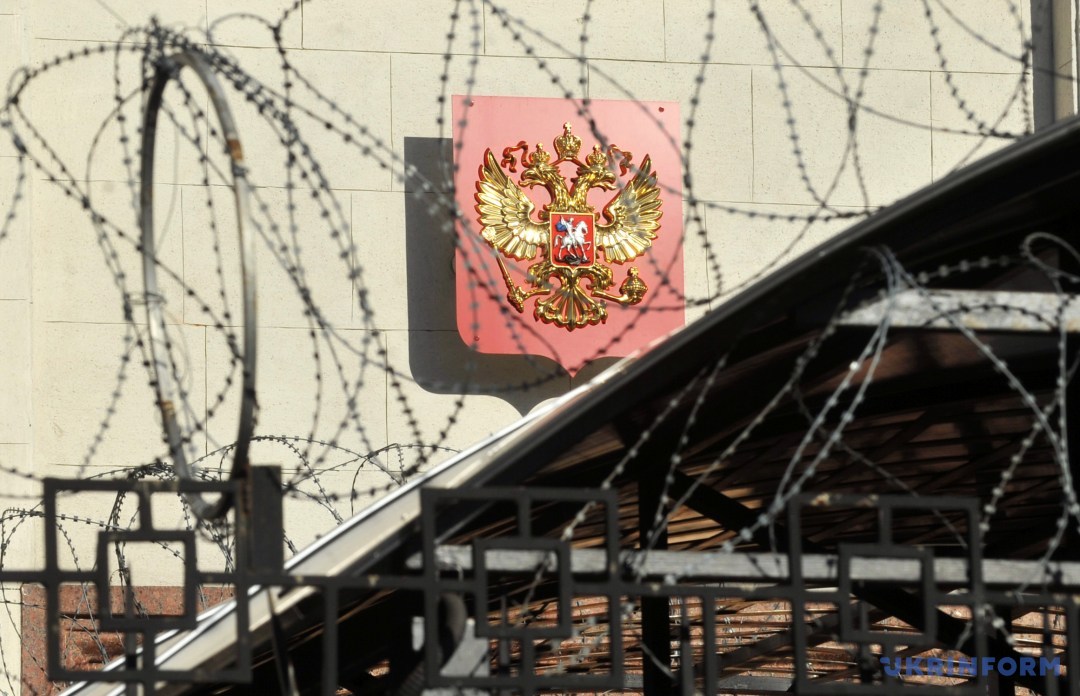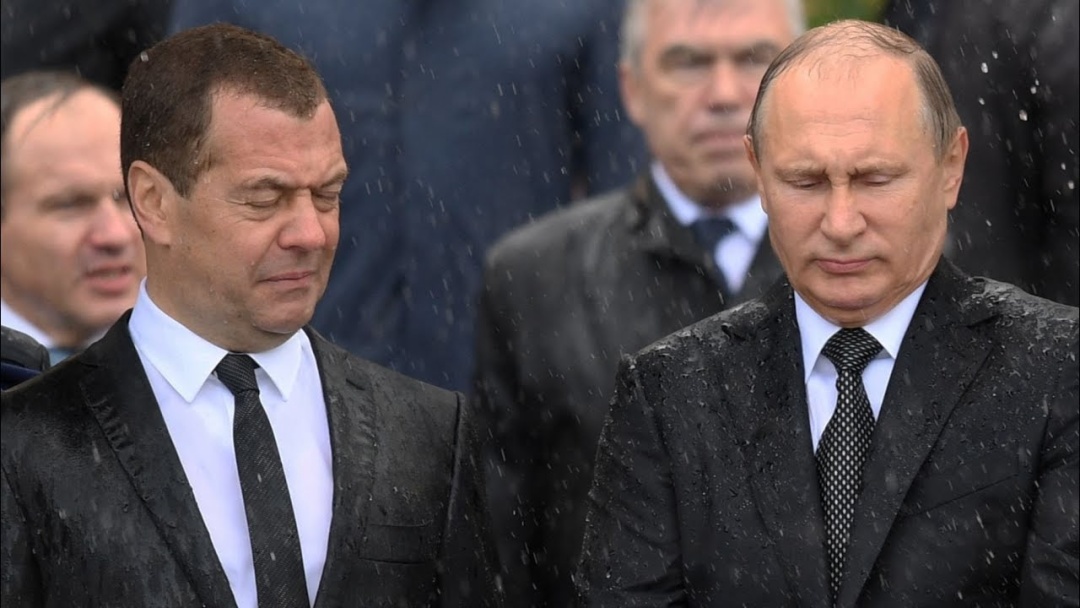What is behind the sudden US sanctions strike on Rosneft and Lukoil, and will this be the beginning of systemic pressure on the Kremlin?
For the first time under Donald Trump, the US has imposed new sanctions against Russia. The restrictions target two key pillars of the Russian oil industry — Rosneft and Lukoil — as well as their subsidiaries.
The reason for the sanctions, as reported by the US Treasury, was the lack of a serious approach by Russia to the peace process. Trump, for his part, explained that he had been waiting for a long time and finally felt that the time had come: Every time I talk to Vladimir, we have a good conversation. But then it goes nowhere. The head of the White House also confirmed that the meeting with Putin in Budapest has been canceled. Instead, he is scheduled to meet with Chinese leader Xi Jinping in South Korea next week — to discuss, among other things, Beijing's potential involvement in ending the Russian-Ukrainian war.
There are also positive developments on Capitol Hill. According to former Voice of America journalist Ostap Yarysh, the Senate Foreign Relations Committee has approved three important bills that directly concern Ukraine. In particular:
- on recognizing Russia as a state sponsor of terrorism — through the forced deportation of Ukrainian children;
- on using frozen Russian assets for the benefit of Ukraine's reconstruction;
- on imposing sanctions against Chinese companies that supply Russia with dual-use goods and thereby support its military industry.
"All initiatives have bipartisan support. Now they should be sent to a general vote - after the shutdown ends," Yarysh said.
Against this background, we have good news from Europe – the 19th package of EU sanctions against Russia.
CATALYST OF TURNOVER: WHY DID TRUMP PUT THE BRAKE ON FRIENDSHIP?
The decision of Donald Trump, who throughout his political career has built an image of a president capable of getting along with Putin, to impose the first sanctions against Russian oil giants in his second term came as a surprise to many. The cancellation of the announced meeting in Budapest only reinforced the impression of a tectonic shift. What was the catalyst that forced Trump to move from the rhetoric of personal chemistry to real pressure? Experts see this as not one, but a whole complex of factors - from personal humiliation to pragmatic domestic political calculation.
Diplomat Vladimir Ogryzko believes that the trigger was Putin's own behavior. I think this is finally Trump's transition from words to at least some real actions. All the months of his second presidency, he openly avoided any steps towards Russia. But after Putin once again humiliated Trump in public and again openly spat in his face, it seems that this was the last straw. Trump understood: he had to do at least something to save his own reputation. And he did.
This version is supplemented by political commentator Oleg Sharp, who points to a specific event in the White House. According to him, an influential bipartisan delegation visited Trump on October 22. The initiator of this was Senator Graham. Moreover, he invited representatives of the US oil and military lobby, as well as the Secretary of State and the Minister of Finance. In particular, they came with a report from their embassy in Kyiv on today's night attack on peaceful objects in Ukraine. This meeting, according to Sharp, took place immediately after Trump's long conversation with NATO Secretary General Mark Rutte. The goal was one: to finally remove the noodles from the ears of the American president, which Putin hung on him. Witnesses to the meeting, according to the columnist, conveyed the president's emotional reaction:"I will never pick up the phone again if this f**king Putin calls me."
At the same time, political expert Yuri Bogdanov notes, pressure on Trump also came from within the Republican Party. He is restrained by his entourage, in particular Marco Rubio and other representatives of professional politics and diplomacy. They convinced Trump that constant flirting with Putin harms his rating and undermines his authority within the country. Bogdanov recalls Rubio's recent conversation with Lavrov, after which it became clear that Putin is not going to any real negotiations, but is only imitating readiness for them. This is what, according to the expert, forced Washington to take tougher and more realistic actions.

Political scientist Oleg Sahakyan suggests looking at the situation even more broadly, pointing to a combination of external and internal circumstances that have developed extremely successfully for Ukraine. This includes a change in public sentiment in the United States and a low start to the Senate campaign on the eve of the midterm elections, he notes. Added to this are foreign policy factors, in particular, a reception by the British King Charles III, who, relatively speaking,"opened Ukraine to Trump." Sahakyan emphasizes that, unlike many in the United States, the British crown sees Ukraine not as a fragment of the former USSR, but as a full-fledged state with dynastic, historical and political ties with Britain. It is not for nothing that a century-old agreement was concluded between London and Kyiv, which testifies: for the British crown, Ukraine is a subject of history that will exist in a century. Therefore, underestimating it (Ukraine, - ed.) is a strategic mistake.
A key factor, according to Sahakyan, was the recent visit of the Ukrainian delegation led by Volodymyr Zelensky, which brought specific agreements in the military-industrial sector. Namely, the military-industrial complex in the US remains a serious player not only economically, but also politically: it is the traditional base of influence of the Republican Party. And in those states where midterm elections to the Senate will soon be held, the votes of defense industry workers can decide the fate of candidates. So Trump simply cannot ignore this factor, the political scientist explains. Thus, Zelensky's visit, in his opinion, took place at the perfect moment to materialize this potential into the new logic of American politics.
PROLOGUE, NOT FINALE: IS THIS A ONE-TIME ACTION OR THE BEGINNING OF PRESSURE?
As soon as the pressure catalysts worked, the main question arose: is this step by Trump a systemic turnaround, or is it just a situational emotional reaction that will not be followed by consistent action? Simply put, is this a one-time action, or is the main thing to start, and then it will be easier? Here, the opinions of experts were divided, ranging from cautious optimism to outright skepticism.
Oleg Sahakyan belongs to the camp of optimists. Well… first of all, the main thing is to start. And Trump took this step gradually. ... But now we are already seeing full-fledged sanctions – the first real ones, adopted by the Trump team. So this is more likely not a final action, but a prologue. The beginning of a new stage.
As proof of the system, Sahakyan points to the instant reaction of Congress, where three bills were immediately in motion: on recognizing Russia as a state sponsor of terrorism and so on. This is no longer a spontaneous reaction, but a systemic process that is obviously only gaining momentum. In addition, he draws attention to the change in the president's rhetoric: Trump is for the first time publicly voicing the position that there should be a ceasefire first, and only then negotiations. This is precisely the Ukrainian formula, not the Russian one. Moscow, on the contrary, is seeking political negotiations without stopping hostilities.
Yuri Bogdanov has a completely different opinion. He is not inclined to consider this a final turn to adequacy on the part of Trump. In my opinion, the sanctions imposed by the US are also a kind of invitation to negotiations. Trump, as before, fluctuates between two poles: on the one hand, he understands that Putin is a threat and is constantly deceiving him, and on the other, he continues to think in categories like"Vladimir, let's make a deal...".
Instead of a complete U-turn, Bogdanov sees a continuation of the same"hybrid" line of behavior, when Trump tries to force Putin to sit down at the negotiating table, but gradually comes to the understanding that this can only be achieved by force, through tough coercion. The expert predicts that the process of increasing pressure will proceed gradually. One should not expect lightning-fast pace. ... So far, there is no reason to believe that Trump has finally realized everything... There are still negotiations with China ahead... so new sanctions will be introduced step by step. However, the course has already been determined.
At the same time, Bogdanov notes an important change: the main thing - and this, in my opinion, is really important - is that now it is Russia that has become the object of pressure, and not Ukraine, as it was before. This is already some progress.
And this is Oleg Sharp: I would like to warn against any euphoria - Trump is not a person who can be called consistent. He believes that the temporary trend is set correctly, but all hope in this sense lies only in his anti-Russian entourage and Putin, who, with his cunning, is able to"get" even such a loyal supporter as Trump.

Finally, Volodymyr Ogryzko agrees that this is just a transition... from words to at least some real actions. He links future success with further steps. The real effect will be if the promised thing is added to this - India's cessation of purchases of Russian oil by the end of the year... And even more so - if... Trump agrees with the Chinese leader on joint pressure on Putin. And, of course, let's not forget about the most effective sanctions - the daily strikes of the Ukrainian Defense Forces, which are already significantly undermining Russia's military-economic potential.
The diplomat concludes: If all these factors come together, they could quickly, perhaps even by the end of the year, significantly limit Putin's ability to wage war. Because until Putin feels real pressure, he won't stop. He can't be persuaded. He can only be forced. And if the current measures bring that moment of coercion closer, that will already be a success.
SYNCHRONOUS STRIKE: HOW WILL THE PERFECT STORM OF THE USA AND THE EU HIT RUSSIA?
The uniqueness of the current situation lies not only in the fact of the Trump administration's first sanctions, but also in their almost perfect synchronization with the actions of its European partners. While Washington was cracking down on Rosneft and Lukoil, Brussels approved its 19th package of sanctions, creating a cumulative effect that experts have already dubbed a perfect storm for the Russian economy.
Washington's blow was targeted and powerful. The US Treasury Department said the restrictions were being imposed on two of Russia's largest oil companies and dozens of subsidiaries, making it harder for them to access Western technology, financing and insurance.
Almost simultaneously, the European Union struck back. As reported by EU representative Kaia Kallas, the 19th package includes a number of painful measures for the Kremlin. The key one is a ban on the import of Russian liquefied natural gas (LNG) to the EU, which, however, will come into force in stages: in 6 months for short-term contracts and from January 1, 2027 for long-term ones. In addition, the package provides for a complete blocking of crypto services for Russian citizens, restrictions on the movement of Russian diplomats, as well as sanctions against 117 vessels of the Russian shadow fleet. It is significant that banks in Kazakhstan and Belarus, as well as 4 Chinese companies related to the oil industry, have also been affected by the restrictions.
It is this synchronization, according to Oleg Sahakyan, that is the main feature of the moment. What is unique... Is that the United States sanctions were introduced synchronously with the 19th package of European restrictions. Moreover, they are coordinated with the already existing British sanctions... Now we see almost perfect coordination.
He paints a vivid picture: Where American sanctions fall short, European ones take effect. Where European ones fail to hit specific companies, American ones strike. And when both of these fronts fail to affect sea deliveries, the British join in (as early as October 15, Great Britain imposed sanctions against Rosneft, Lukoil, and the Russian Federation's"shadow fleet"). As a result, a cumulative effect is formed - something like a"perfect storm" for Russian oil exports.
The storm has already caused panic among key buyers of Russian oil, with Chinese state-owned oil companies suspending purchases of Russian oil by sea over concerns about Western sanctions, Reuters reported.
Bloomberg confirms that the sanctions have sent shockwaves through China. The publication explains Beijing’s dilemma: Chinese refiners are forced to either maintain supplies at the risk of serious secondary penalties, including being cut off from Western banking systems and access to dollars, or, by complying with the sanctions, they will lose access to oil at significantly reduced prices.
Yuri Bogdanov also points to the beginning of synchronization, in particular regarding the shadow Russian fleet, the joint position of the US and the G7 countries regarding the price ceiling for Russian oil, and the practical consequences for Russian companies in Europe: In particular, we are talking about the Lukoil plant in Bulgaria, sales in Hungary, some oil refining in Romania (...) We can expect that the Americans will gradually catch up with the Europeans in sanctions policy. And, perhaps, they will even begin to set the pace and demonstrate leadership in this matter.
THE KREMLIN'S REACTION: NUCLEAR SCARE AND PONT TRADING
In response to the coordinated Western strike, Moscow, according to experts, will resort to its traditional two-track tactics: public bravado and threats, combined with non-public attempts to stall for time and demonstrate a willingness to engage in dialogue.
The most vivid illustration of this reaction has already been provided by Vladimir Ogryzko . In fact, the answer has already come from Medvedev. He called Trump the same marasmic as, according to him, Biden was, and added that now, instead of all these"pseudo-deals" and agreements, they will strike wherever possible to destroy the Bandera regime. The diplomat is convinced that Medvedev in this case is actually conveying Putin's opinion.

Accordingly, Ogryzko predicts, we should expect a clear escalation of tensions. He points to the already noticeable"planned" exercises of the Russian nuclear triad and footage of Putin listening to military reports. All this is classic"scaremongering","scaremongering", pure spectacle... In fact, the entire Russian narrative will be reduced to nuclear threats. But officially... they will continue to talk about"peace","contact","dialogue".
Yuriy Bogdanov paints a similar picture. I think that at the level of the most influential people we will hear the usual mantras:"and we will survive this","it is Ukrainians and Europeans who are trying to quarrel us with Trump","and we are with Donald, as always - in spirit".
In parallel, according to him, the second echelon will operate: Medvedev and other figures of the second echelon will again start spreading their"alcohol messages" that America will either eventually adhere to the Russian position or "burn in a nuclear flame." All this will be accompanied by the propaganda narrative of not breaking us. Bogdanov gives a clear assessment of this: In reality, this is more of a show-off. The economic situation in the Russian Federation is deteriorating, resources are becoming increasingly scarce, and there are practically no chances for any tangible victory over Ukraine.
Oleg Sahakyan agrees that the Kremlin's rhetoric will not change. They will say the same thing again:"The whole world is at war with us." The second line will be the accusation of the West: You see what scoundrels they are... The Europeans are evil, and hawks gathered around Trump, who burned America's last chance for adequacy. Moscow's strategic task in this situation, according to the political scientist, is extremely simple: to stall for time. To slow down any tough steps regarding the Russian economy..."to stand by during the day, to hold out at night."
CONCLUSION
The Trump administration’s first sanctions against the Kremlin’s energy pillars, Rosneft and Lukoil, were undeniably a landmark event. Whether this move is a prologue to a new, tougher policy, as some experts believe, or merely a hybrid attempt to force Putin into negotiations, the fact remains: Washington’s period of passive waiting is over.
The key to success is not so much Trump’s move per se, but its unprecedented synchronization with the EU’s 19th package of sanctions and the UK’s actions. This perfect storm is already creating real problems for Russian exports, making even Moscow’s key partners like China nervous.
Russia’s response, which oscillates between second-tier nuclear threats and mantras about show-offs, suggests that the strikes have achieved their goal. While no one can predict Donald Trump’s succession, one thing is clear: his corridor of opportunity has narrowed, and the cumulative pressure on Russia has begun to take on the characteristics of a coordinated Western strategy for the first time in a long time. And in this new reality, it is Russia, not Ukraine, that has become the object of coercion.

